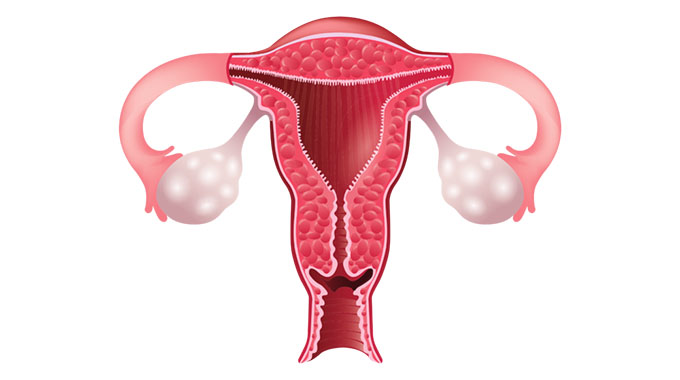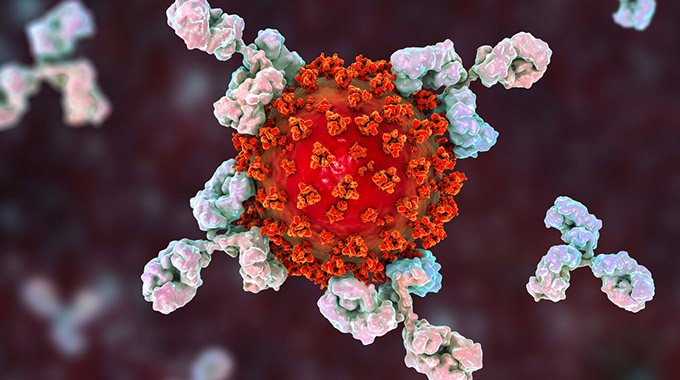Does COVID-19 Wreak Havoc with the Menstrual Cycle?

Stacey Colino
It’s no secret that intense stress — such as losing a loved one, moving to a new home, or getting divorced — can mess with a woman’s periods. And there’s no question that the coronavirus pandemic qualifies as a major form of stress. So it’s not exactly surprising that some women have been experiencing menstrual disruptions — from skipped periods to longer cycles to changes in bleeding patterns — in recent months.
This can happen if a woman becomes infected with the coronavirus or if she’s simply dealing with the prolonged stress of the pandemic, according to a recent report published in MedPage.
“What we can say about COVID-19 and its effects on the menstrual cycle is comparable to what we can say about other viral infections and prolonged periods of stress — menstrual disruptions are likely to occur,” says Tara Shirazian, MD, the director of Global Women’s Health and an assistant professor of obstetrics and gynecology at NYU Langone Health in New York City. “If you get COVID-19, it’s a stress on the body and a major stress on the hypothalamic pituitary adrenal (HPA) axis,” which is the body’s central stress response system.
During times of stress, the HPA axis stimulates the release of the stress hormone cortisol, to help the body prepare to fight or flee from a threat. With ongoing stress, “increased cortisol levels can affect a woman’s menstrual cycles,” Dr. Shirazian says. In addition, with prolonged periods of stress, the stress response system can burn out, and the HPA axis can be “suppressed, which drives down the pituitary production of estrogen and progesterone,” she adds.
With complete suppression of the HPA axis, a woman may experience amenorrhea, the absence of periods. With partial suppression, a woman could have spotty periods or periods of bleeding every few weeks. “There isn’t one clear pattern we can expect — women respond differently to suppression of the HPA axis,” Shirazian says.
A One-Two Punch to Menstrual Periods
“The thing that’s important to emphasize is: Any illness can cause menstrual irregularities,” says Lauren Streicher, MD, a clinical professor of obstetrics and gynecology at Northwestern University in Chicago. “When you look at the combination of a serious infection [such as COVID-19] and the stress of the pandemic, it’s to be expected. How much of this is due to this specific infection versus any chronic stress or infection isn’t known and hasn’t been studied.”
It’s important to remember that “biologically, women menstruate for one reason and one reason only — to get pregnant,” Streicher adds. “Who do you not want to get pregnant? Women who are sick.” In other words, the dysregulation of the menstrual cycle that may be induced by COVID-19 infection is a biologically and evolutionarily protective mechanism, both for the woman herself and for her potential offspring.
As far as the stress of the pandemic goes, it’s occurring on two fronts. Besides the fact that stress itself increases cortisol levels, which can affect menstruation, the disruptions that have occurred to people’s lifestyles and routines during the pandemic can affect a woman’s menstrual cycles. And if women have become more sedentary or gained weight during the pandemic, Shirazian notes, these changes can affect their periods, perhaps leading to missed menstrual periods, longer spans between periods, or longer bleeding time.
Indeed, “any stressful situation can alter hormone levels and cause someone not to menstruate regularly,” Streicher says. “Mostly it’s because ovulation is not occurring.”
Taking Back the Monthly Period
Whether or not you have been sick with COVID-19, if you experience a change in your periods during the pandemic, the first step is to consider whether you could be pregnant. If you confirm that you’re not expecting and “you miss a period for a month or two but you’re otherwise feeling fine, it’s not something to panic about,” Streicher says.
The changes may be due to the stress of the pandemic or to changes in your lifestyle habits. Still, it’s wise to check in with your ob-gyn, Streicher says. “Most of us are seeing patients in person at this point or through telemedicine.” Getting some advice and reassurance about this issue will give you one less thing to feel stressed about. – Everyday Health









Comments